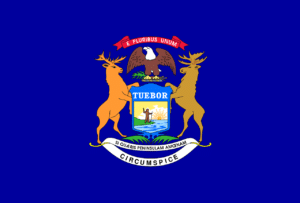
Cannabis Midterm: Here’s who won

The 2018 midterm elections allowed citizens to vote on more than just house and senate seats.
On Tuesday November 6, 2018, three states voted to legalize cannabis in some form. Utah and Missouri have both legalize medical marijuana, and Michigan has fully legalized cannabis.
Every state differs greatly on how they set up and run their legal cannabis programs. Some do it very well (e.g. Colorado, Washington), others don’t handle it so well (looking at you Massachusetts and Vermont). That’s why it is important to know each state’s laws, especially if you are a medical or recreational cannabis consumer, as the laws you abide in your home state may be very different across the border.
Utah medical marijuana

Proposition 2 legalizes medical marijuana for individuals with qualifying conditions. Individuals can receive a Utah medical marijuana card with a recommendation from a physician. Under the measure, an Utah medical marijuana cardholder cannot smoke marijuana or use a device to facilitate the smoking of marijuana.
During any one 14-day period, an individual would be allowed to buy either 2 ounces of unprocessed marijuana or an amount of marijuana product with no more than 10 grams of tetrahydrocannabinol (THC) or Cannabidiol (CBD). Proposition 2 was designed to exempt marijuana from local and state sales taxes. It directs the state legislature to enact business license fees for marijuana business to fund the ongoing costs of the initiative’s implementation.
From the basic spread of the proposition, Utah medical marijuana will have some hurdles up ahead. One of the largest hurdles will be that of the Church of Latter Day Saints, the primary religious sect in the state with strong connection to the state legislature.
While the LDS has already voiced their disapproval of Proposition 2, it wasn’t enough to prevent its passing. So keep an eye out for plenty of attempted roadblocks of Utah medical marijuana by the LDS in the future.
Missouri medical marijuana

Amendment 2, a constitutional amendment to allow medical cannabis, passed by a margin of 66 percent to 34 percent in Missouri on November 6th.
Under the new law, qualified patients who have approval from their physicians will receive identification cards from the state that will allow them and their registered caregivers to grow up to six marijuana plants and purchase at least four ounces of cannabis from dispensaries on a monthly basis.
Unique to the Missouri medical marijuana program, doctors will be able to recommend medical cannabis for any condition they see fit; there is no specific list of qualifying disorders. Additionally, the state regulators will issue licenses for medical marijuana dispensaries, as well as cultivation, testing and infused product manufacturing businesses.
There will be a four percent retail tax on medical cannabis sales, with revenue being earmarked for services for military veterans once implementation and regulations costs are covered. It would seem that Missouri is definitely on the right track with their program. If they can stick to their timeline and work to open up their market, they could be very successful in the future.
Michigan legal marijuana
On November 6th, Michigan became the 10th state to fully legalize the sale, possession and consumption of cannabis and cannabis-infused products in the country. This marks a big step for a state that only recently also legalized medical marijuana.
Under Proposal 1, people over 21 can hold up to 2.5 ounces, and store up to 4x that amount. A household (not per person) can grow up to 12 plants for personal use. The sale of Michigan legal marijuana will be taxed at the state sales tax of 6%, plus an additional 10% marijuana tax.
These taxes when put in place are expected to bring in anywhere from $100-200 million for schools, roads and public service programs. With an infrastructure already established through the Michigan medical marijuana program, it should be a smooth transition into the legal market.
Michigan has even put safeguards in place as to avoid mistakes similar to that of Massachusetts, where cannabis has been legal for two years but there is not a single dispensary open due to government pushback. Michigan has combatted this issue preemptively by including a 12-month window in which the government is to set up their system and begin accepting applications.
Should the government drag its feet for 12 months, applicants can then begin to apply directly to their municipality, and avert the state all together. This means in 12 months, regardless of how much pushback or knuckle dragging Michigan legal marijuana may endure, applications will start coming in, and the Michigan legal marijuana industry will begin its implementation.
For the full outline of Proposal 1, click here.
There are a couple other states that voted on cannabis-related measures in the midterm as well, including Colorado and Florida. Check out the new Real Dirt Harvest Special to hear all about Amendment X in Colorado.







